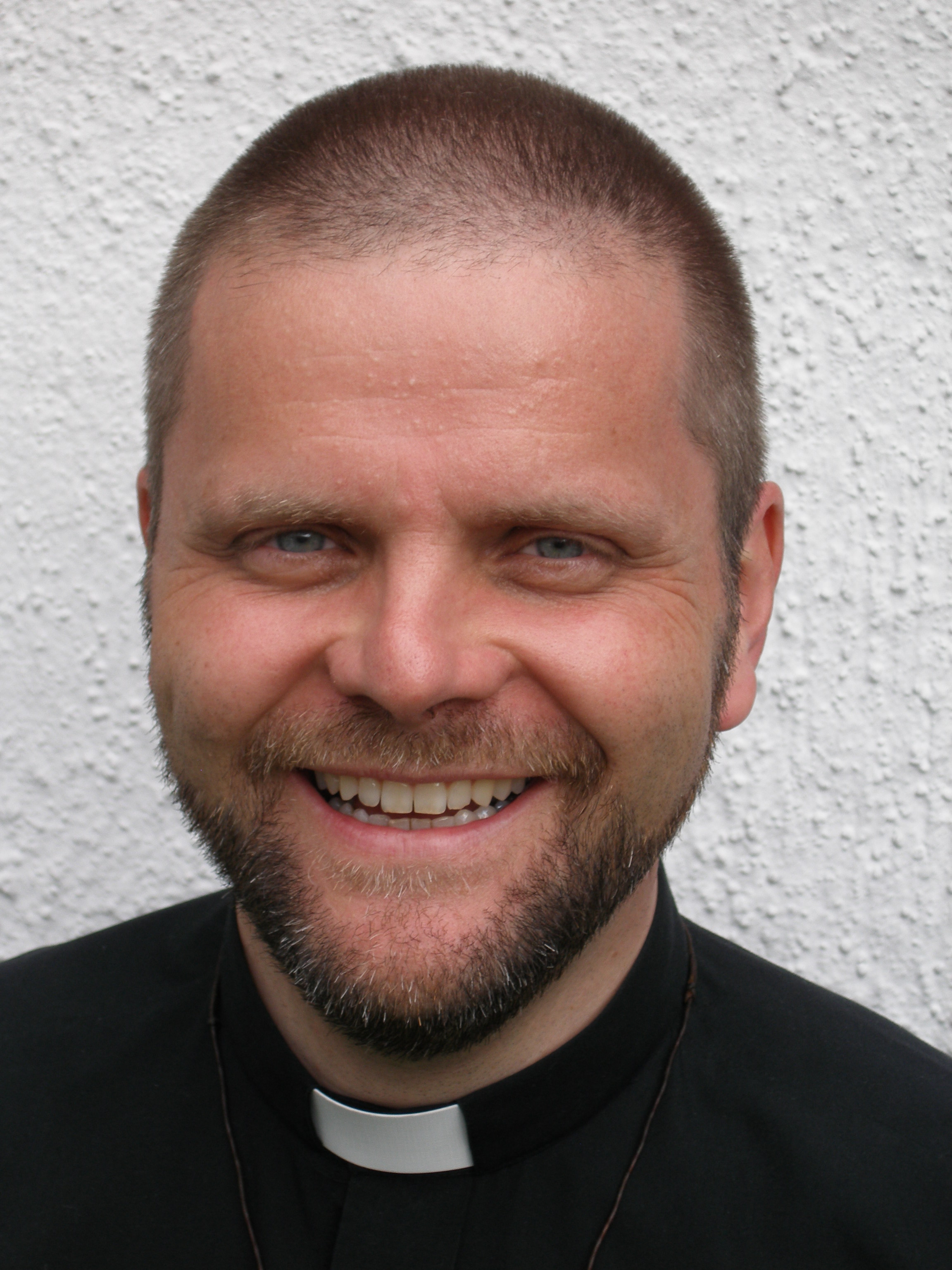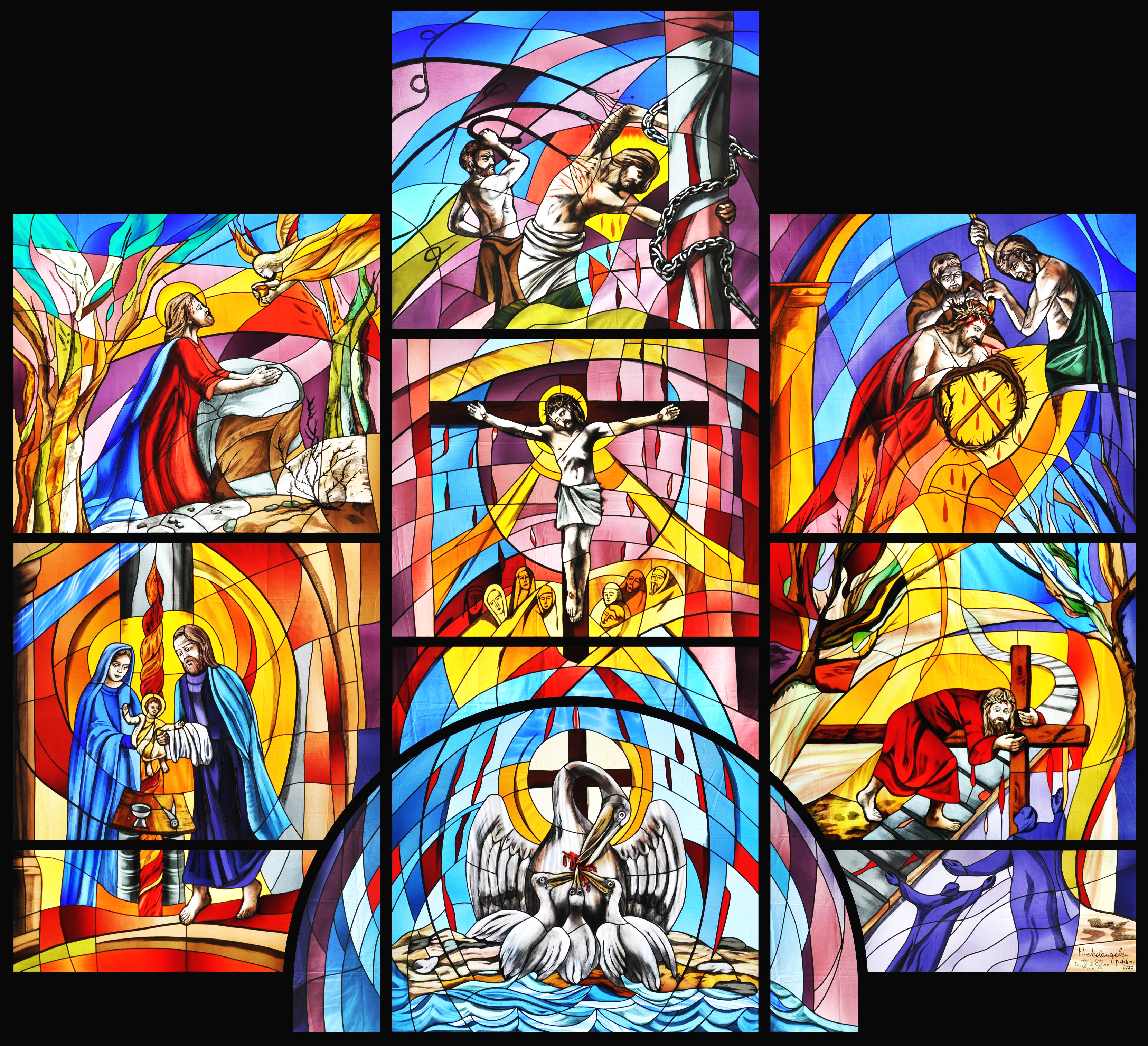As a child and teenager, I gradually drifted away from the sacrament of confession. I thought: One can alone get rid of ones sins and faults with the love of God. Why do I need to go to a priest? Why do I need confession? Why must I confess my sins to another person?
While making my first retreat, when I was sixteen years old, I had the opportunity to go to confession. At first I hesitated, but then a longing grew in me to open up to this new experience. I was not disappointed. The merciful love of God which I experienced in the dialogue with the priest, helped me to understand, “God has done all things well!”
From then on, regular confession became an important element of my spiritual journey. I learned that as a Missionary of the Precious Blood, this sacrament is the mystical source of the blood of Christ. I let the power of this blood, which was poured out on the cross for our reconciliation, flow in my heart wounded by sin, with its redeeming, liberating and forgiving power.
“We look,” so writes Clement of Rome to the Corinthians, “on the blood of Christ and we realize how valuable it is to his Father; “because shed for our salvation, it brought the world the grace of repentance”.
This grace of repentance is effective in a unique way in the sacrament of reconciliation. The Catechism of the Catholic Church expresses this so in #1442: “Christ has willed that in her prayer and life and action his whole Church should be the sign and instrument of the forgiveness and reconciliation that he acquired for us at the price of his blood.
But he entrusted the exercise of the power of absolution to the apostolic ministry which he charged with the “ministry of reconciliation” (2 Cor 5:18). The apostle is sent out “on behalf of Christ” with “God making his appeal” through him and pleading: “Be reconciled to God” (2 Cor 5:20).
The Church has always taught that there are different forms and ways to express repentance. However it remains clear that the sacrament of reconciliation, established by Christ, whose dispensation is reserved for the ordained priesthood, remains indispensable, and permeates and animates the other forms of expression. Like any other sacrament, we meet Christ himself in the confessional. He is the doer, he absolves me from my sins, and he washes me with his precious blood.
He is our mediator with the Father, and since his Ascension wishes to do it through this incarnated form, through the ministry of a human person, namely a priest, to whom this power is entrusted through Sacred Orders. It is the Apostolic authority of the Easter story, as John the Evangelist tells us: “After he had said this, he breathed on them and said to them: ‘receive the Holy Spirit. To whom you forgive sins, they are forgiven; to whom you deny forgiveness, it is denied.’” (John 20:22-23)
As a priest and Missionary of the Precious Blood, I am grateful to exercise this sometimes arduous, but especially beautiful service to the people and to be myself the recipient of the grace of this sacrament. At retreats, youth meetings, working with young families, in spiritual direction often associated with the administration of this sacrament, I must live with conviction my mission at the service of reconciliation in the view of the blood of Christ. The words of Saint Gaspar resound in my heart: “This is the price of redemption; this is the reason of my confidence in my salvation. I want to dedicate my whole life to this spirituality. For this I am priest, to serve the work of the blood of Christ.”
Even if it is true that this sacrament, which occupies an essential place in the context of the much larger theme of reconciliation, has experienced a huge slump in some places in recent decades, it cannot be overlooked that there are also new awakenings. I think specifically of the youth gathering in Salzburg on the feast of Pentecost. In recent years about 5,000 young people turn up for the event. During the “evening of mercy” between 60 and 80 priests are there serving the young and young at heart through the sacrament of reconciliation. Ultimately they are unable to cope with the large number of those who want to confess. The positive feedback received from many young people, acknowledge how much new courage, how much healing and liberation, how much force to start anew, was given them. This is just one example, but one that gives hope.
The fact that the practices of psychologists and psychotherapists are overflowing, makes it clear how much people today need more opportunities, where they can express and speak about their problems. The task of these professionals is highly commendable and necessary. I wish to emphasize this here so as to avoid any misunderstanding. However, there is an essential difference between psychotherapy and confession. Put simply: only a priest can forgive my sins, since he is acting in “persona Christi capitis” (in the person of Christ the Head) due to the fact that a Bishop imposed his hands on him and ordained him. In the sacrament of Penance, as well as in the Eucharist and the other sacraments, the ordained minister acts with the authority of Christ.
Therefore he must, like Jesus Himself, be a radical servant, who washes the feet of those who come. And he should express the attitude and the words the Lord spoke to Peter: “If I do not wash you, you have nothing in common with me.”
Jesus has sealed his way of serving with his blood on the cross. Therefore the faithful, upon participating in the Sacrament of Reconciliation receive the effects of this blood, which was shed for the remission of our sins. He shares in the life of Jesus. This belief should encourage us to open ourselves to the grace of this sacrament on a regular basis. In this way, we will sharpen our conscience. Every new encounter with the living Christ brings us forward on the way of sanctification, which is the will of God for all of us (cf. 1 Thess 4:3).
The one who has the courage to recognize and confess his sins, should know that he is absolved of what he has sincerely confessed. It reaffirms also the unique dignity which is inherent to us humans: we are free to sin and to embark on wrong ways; we are also free to repent and return to the Father’s house. There the Father awaits us with open arms, and the encounter with him will be a celebration. “For God is gracious and merciful, slow to anger and rich in steadfast love and faithfulness” (cf. Joel 2:13).
Saint Gaspar said once: “We thank God for the many contributions he gives us on the path to holiness, and at the same time for our task of the sanctification of the Nations.” One such specific help is the Sacrament of Reconciliation. In it we encounter Jesus, whose Heart is open to receive us. The sacraments of the Church spring from him, and we approach eagerly this source, a source of the blood of Christ.

Fr. Andreas is the former Provincial of the Teutonic Province. He currently serves in Retreat ministry at the Maria HIlf Retreat House and Shrine in Kufstein, Austria.

